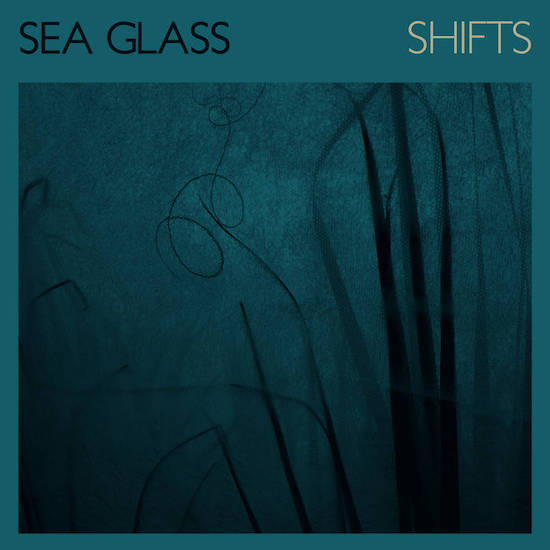Lately, I have been thinking about gentleness. In my home country, and my home state, it is a trait that is increasingly undervalued, especially now, in a time when you’d think it might be considered laudable. Instead, our ruling party is concerned about being too soft on those affected by an ongoing economic collapse and pandemic. I suppose this is likely true of any society in the grip of an American-style late capitalism egged on by (charitably speaking) a fascist-adjacent conservative party. Here, where winners take all and celebrated sociopathic corporate giants dominate and influence every sphere of society, gentleness is often conflated with weakness. Treated as some sort of defect, along with complementary virtues such as patience or a generosity of spirit. But I don’t think that’s the case at all. There is power in gentleness, and real strength and confidence in a gentle approach.
For Sea Glass – Matt Ashton and Melinda Bronstein with Mike Cranny behind the mixer – these traits aren’t something to be shunned but embraced and relied upon. Over three LPs and one thirty-minute drone piece in about a year, The Leaf Library, Ashton’s main gig, have trod the paths of gentleness, patience, and generosity of spirit to deeply rewarding effect. These releases found them working in three distinct modes: a subtly collaged, pseudo-musique concrète portrait of quarantine life presented itself on Quiet House; an arresting and affecting exploration of longform song structures and seemingly endless repetition emerged on The World Is A Bell; slowly unfurling smears of elemental ambience drifted into focus on the newly reissued About Minerals. Though operating modalities might shift from record to record, a definitive Leaf Library-ness unifies the band’s catalogue. There’s a post-Broadcast, post-Stereolab sensibility that’s immediately apparent – though they absolutely aren’t derivative of either group. An almost meditative approach to repetition is embraced, a bittersweet undercurrent of melancholy is detectable, there’s that certain warmth of a long-occupied, well-lived-in home sat near a cold sea, and that familiar feeling of being given an unexpected, perfectly wrapped gift from a beloved friend – one that you want to take your time unwrapping.
It’s possible that at first glance, Shifts, the debut Sea Glass LP, could be mistaken for a Leaf Library project, or that one might wonder why it isn’t. Ashton and Bronstein are collaborators in The Leaf Library after all, and the music presented here embodies nearly all the qualities inherent in a Leaf Library recording. But where Sea Glass’s parent group almost always favors expansiveness, Shifts leans heavily on a strange sort of concision. That is, a concision that feels expansive. Though none of the album’s tracks exceed five minutes in length, with all ten clocking in at a lean 34 minutes total, each individual song offers its own humble yet immersive soundworld, at once intimate and paradoxically massive. You can sense the spectre of dub in the way the elements resonate within and otherwise occupy and interact with the space they inhabit.
None of this is to suggest that Sea Glass fail to differentiate themselves from The Leaf Library sonically. Bronstein’s soothing vocals – in rounds, harmonised, at times practically choral – are each track’s centerpiece. Their interplay with Ashton’s delicate, spare melodies – often sketched out by an acoustic guitar – is paramount. Although these are incredibly detailed compositions, the environmental flourishes never distract, the focus never shifts. This lends the record a slightly odd, particularly English folk aesthetic unlike anything The Leaf Library have tackled before. More importantly, the way these songs are arranged allows them to take you by the hand, to guide you into their worlds. Before you know it, you’ve arrived at the raw, bruised sentiment and longing that lurks at the heart of them. Never a shock to the system or a gut punch, the album reveals the depth and intensity of the emotions it contains subtly, almost subliminally. They wash over the listener like softly rolling, cleansing waves.
Back in April, I was invited to make a mix for Coral Morphologic’s Coral City Camera live stream. As I was making it, I spent hours watching a little urban reef in Miami. Though swings in weather could be dramatic, mostly things just poked around in the reef and swayed gently in the current. Aquatic flora swayed. Fish swayed. Manatees swayed. Even sharks swayed. Despite the ocean’s reputation for sturm und drang violence, I witnessed none. Throughout lockdown, I’d cue up the coral feed and set whatever it was I was listening to at the time to it. It did wonders for my mental wellbeing. As you might expect from the band’s name and the album’s title and all the traits I’ve attributed to it, Sea Glass’s Shifts was an ideal accompaniment to the visuals on my flat-screen display, the efficacy of both amplified by the somewhat submerged, undersea quality of Cranny’s arrangements and mixing, which feel wonderfully coastal. You can almost picture the band recording these sad but sweet, powerful songs on a jetty, clothes and instruments slick from a light salt mist.


